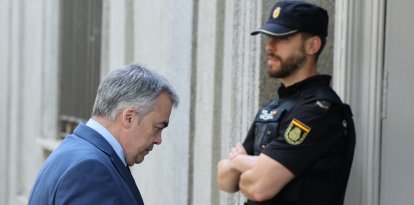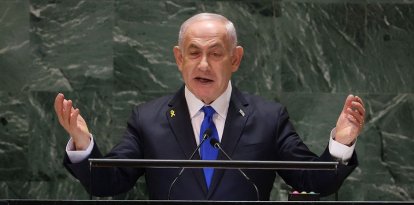Brazil: Report denounces historic forest fire record in 2024 as government deforests more areas in Amazon to build highway
The area razed, equivalent to more than 30 million hectares, exceeds the size of Italy, marking the worst record in 40 years, according to an annual report.

Amazon rainforest, Brazil.
In 2024, the Brazilian Amazon registered a devastating all-time record for forest fires, with 15.6 million hectares of vegetation consumed, according to the annual report by MapBiomas, doubling the average of the last four decades.
This figure, which represents 52% of the total area burned in Brazil, underscores the vulnerability of the largest rainforest on the planet.
At the same time that this report comes to light, the government of Luiz Inácio Lula da Silva, which is preparing to host the COP30 in Belém, in November of this year, is facing criticism for its environmental management.
Paradoxically, the authorities of the state of Pará are building a four-lane highway to facilitate access for the expected 50,000 COP30 attendees, cutting down part of the Amazon in the process.
The report names the Amazon as the epicenter of fires in the country, with 52% of the total area affected. The area burned, equivalent to more than 30 million hectares, exceeds the size of Italy, marking the worst record in 40 years.
This balance represents a significant challenge for da Silva, who is preparing to host the UN COP30 climate conference.
In addition, the research highlights that, for the first time since 1985, forest formations surpassed grasslands as the most affected cover type, accounting for 43% of the area burned in the Amazon, with 6.7 million hectares of forest impacted versus 5.2 million hectares of grasslands.
The Pantanal, proportionally the most affected biome
Although the Amazon concentrates the largest burned area, the Pantanal, the largest wetland in the world, was the most affected biome in proportional terms, with 62% of its area burned in the last 40 years.
According to Eduardo Rosa, MapBiomas researcher in charge of the Pantanal, this biome is particularly vulnerable because 83% of its territory is covered by native vegetation.
In addition, 72% of the affected areas have suffered fires 22 times or more in the last four decades, a trend that has intensified since 2019.
COP30 in Belém: The paradox of a highway that cuts down the Amazon for the UN climate summit
A few months before COP30, the construction of a four-lane highway in the state of Pará has unleashed criticism for its impact on the Amazon, one of the planet's main lungs.
This infrastructure, intended to facilitate access for the more than 50,000 expected attendees, has required the clearing of jungle vegetation, contradicting the objectives of the conference.

World
Brazil: Part of the Amazon deforested to facilitate access to UN climate summit
Alejandro Baños
Impact on communities and ecosystems
The highway has generated outrage among residents. Claudio Verequete, a farmer in the area, denounced to the BBC the destruction of his crops: "Everything was destroyed. Our harvest has already been cut down. We no longer have that income to support our family.” Verequete also expressed concern about the future, “We were born and raised here in the community. Where are we going to go?"
In addition, he pointed out the lack of access to the road for the community's needs, such as transfers to downtown Belém, mainly benefiting passing trucks.
For her part, Silvia Sardinha, a veterinarian who protects local fauna, warned about the loss of habitat: "Land animals will no longer be able to cross to the other side too, reducing the areas where they can live and breed." Deforestation also limits the spaces to reintroduce species into their natural environment, aggravating the pressure on Amazonian biodiversity.
A "sustainable" highway under scrutiny
The state government of Pará, led by the secretary of Infrastructure, Adler Silveira, defends the project as a necessary modernization to receive COP30 attendees.
Silveira assured that the highway will be "sustainable," with wildlife crossings and bicycle lanes. However, these promises have not calmed critics, especially when we have just read that in 2024 fires ravaged 15.6 million hectares in the Amazon, doubling the historical average. Cutting for this infrastructure adds a new wound to an already vulnerable ecosystem.

























